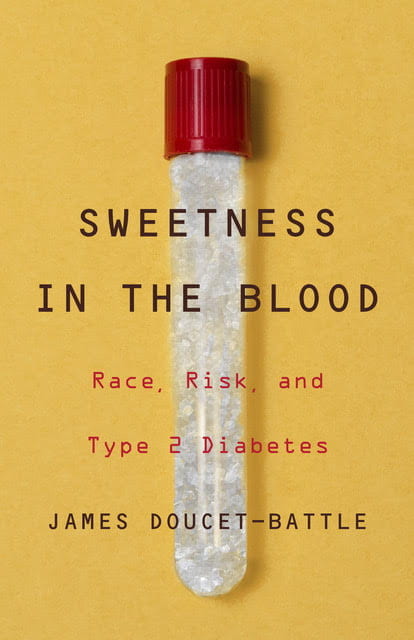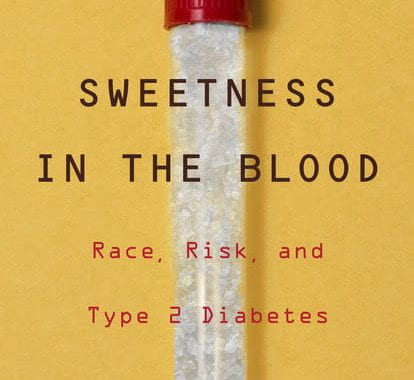On Wednesday, April 7, 2021 at 5:30pm–7:00pm, there was a University Forum to celebrate the launch of Sweetness in the Blood: Race, Risk, and Type 2 Diabetes (U. Minn Press) by Assistant Professor of Sociology and Interim SJRC Director (fall 2020) James Doucet-Battle’s new book that challenges assumptions about race within diabetes research and delves into the issue through the lens of African American experience.
The book is available at: https://www.upress.umn.edu/book-division/books/sweetness-in-the-blood
Learn more in this campus news article, “Uncovering the social factors lurking within diabetes risk.”
With opening remarks and general welcome by Science & Justice Research Center Founding Director and Professor of Sociology Jenny Reardon and introductions and moderation by Nancy Chen (Professor of Anthropology, Associate Dean for Health, Wellbeing and Society), we aim to gather in the spirit of celebrating Sweetness in the Blood’s launch, broadening the discussion of race and risk, and supporting the work of the UC Santa Cruz Science & Justice Research Center.
Nancy Chen is Professor of Anthropology, Associate Dean for Health, Wellbeing and Society at the University of California, Santa Cruz.
James Doucet-Battle is an Assistant Professor in the Department of Sociology at the University of California, Santa Cruz. He is a graduate of the University of California, Berkeley/University San Francisco Joint Medical Anthropology Program. His research and teaching interests lie at the intersection of science, technology and society studies, development studies and anthropological approaches to health and medicine. He applies these interests to study the political economy of genomic discourses about race, risk, and health disparities.
Edward T. Hawthorne founder and managing partner of CE3 Solutions, LLC, serves as Chief Administrative Officer. Prior to CE3 Solutions, Hawthorne had a 33 year career with Bank of America holding various senior executive positions covering technology, operational risk, and customer servicing worldwide. He is currently Vice Chairman of the board for the Diabetes Leadership Council, and serves on the Emeritus Council for the American Diabetes Association, and the board of directors for Children with Diabetes. He is also past Chairman of the National Board of Directors for the American Diabetes Association.
Jenny Reardon is a Professor of Sociology and the Founding Director of the Science and Justice Research Center at the University of California, Santa Cruz. Her research draws into focus questions about identity, justice and democracy that are often silently embedded in scientific ideas and practices, particularly in modern genomic research. Her training spans molecular biology, the history of biology, science studies, feminist and critical race studies, and the sociology of science, technology and medicine. She is the author of Race to the Finish: Identity and Governance in an Age of Genomics (Princeton University Press, 2005) and The Postgenomic Condition: Ethics, Justice, Knowledge After the Genome (Chicago University Press, Fall 2017). Recently, she started a project to bike over one thousand miles through her home state of Kansas to learn from farmers, ranchers and other denizens of the high plains about how best to know and care for the prairie.


